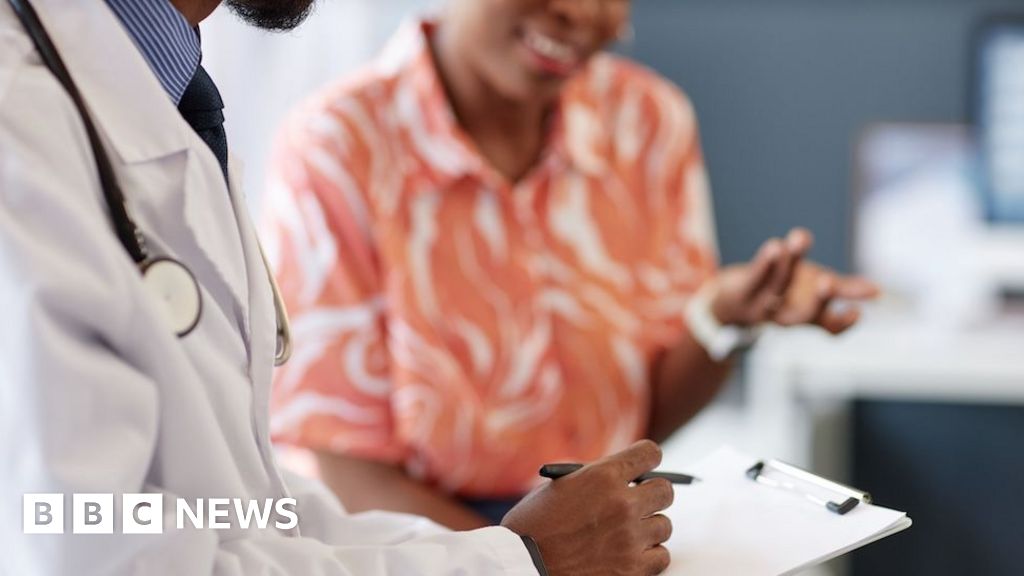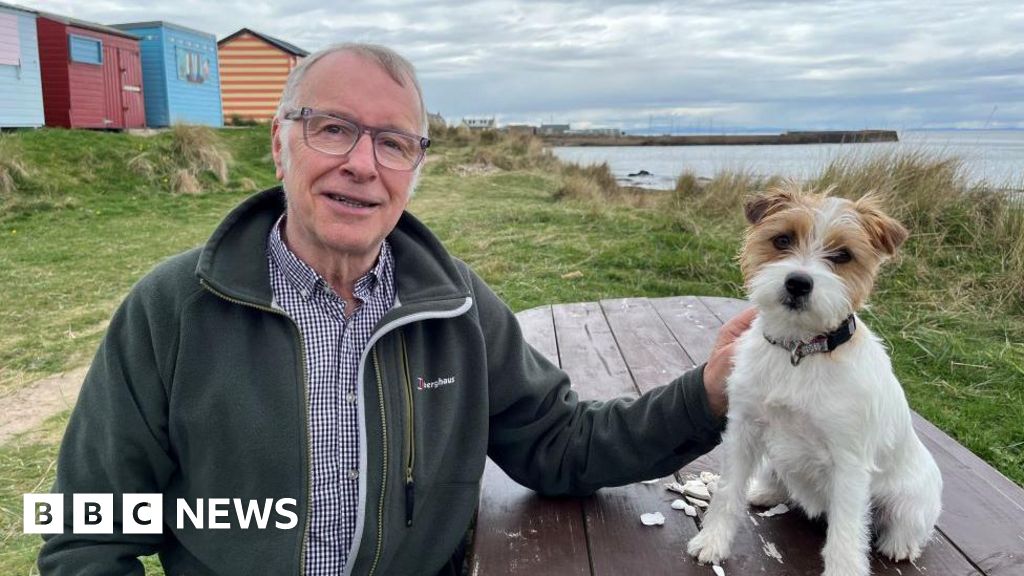ARTICLE AD BOX
By Jenny Rees
BBC Wales health correspondent
John Evans said he spent four-nights on a chair in A&E waiting for a bed
When John Evans needed treatment for a rapidly spreading skin infection on his face, he was told to go to A&E.
"It's happened to me before, so I knew I had to get some serious treatments and IV antibiotics," said the 59-year-old from Cardiff.
But he said he spent four nights on a chair at Cardiff's University Hospital of Wales waiting for a bed.
Cardiff and Vale health board said it was in touch with Mr Evans and "sincerely" apologised.
The Welsh government said health boards were already working together to share infrastructure and were expected to develop regional approaches for high volume and specialist services.
"I was really shocked by the conditions that the patients and staff were in," said Mr Evans.
"There was only one toilet to use and no hot food.
"The staff did a fantastic job and they worked really hard and they're so caring, but they were under real pressure as well.
"There was a sense of helplessness from the staff to the point where they had to just manage their way through a horrific situation, caring for people in this way.
"I'd always believed that the health service was there if I needed it.
"In this instance it was there, but only just only just and that was because of the staff and their professionalism."
A health board spokesman said: "Our services are under extreme pressure due to a number of factors including current staff shortages and the sustained challenges coronavirus presents.
"In addition, health and social care services across Cardiff and the Vale of Glamorgan are experiencing significant and sustained pressures which is impacting the timely discharge of patients from hospital.
"These and other challenges are impacting on patient flow within our sites and, in turn, waiting times in our emergency unit.
"In this instance we sincerely apologise for the delays and experience for Mr Evans, and our concerns team are in touch with him to respond directly to the concerns raised."
University Hospital of Wales in Cardiff is the main A&E for the health board
The disrupted flow of patients through the hospital system has been well documented during the pandemic.
Staff shortages in social care means there are currently about 1,000 patients who are medically fit in Welsh hospitals, but care cannot be secured in the community, meaning their beds cannot be given to others.
The impact has trickled through the system, leaving patients such as John with long waits for a bed, as well as more than 8,800 patients waiting more than 12 hours in A&E in November alone.
The most recent A&E waiting times showed an improvement for those waiting both four and 12 hours, but that is compared with record lows in September and October.
The target is that 95% of patients should be seen within four hours, but it was 67.6% in November. Fresh data is due to be published on Thursday.
Opposition parties said long term solutions were required and Sue Hill, from the Royal College of Surgeons, agreed.
"Already in Wales we had bigger, longer waiting lists per head of population than similar places in England," said Ms Hill.
"Every winter I've had to cancel my elective patients because beds on my surgical ward are full of medical patients with chest infections, not Covid, but flu, pneumonia and those things."
In October 2021, there were almost 680,000 patient pathways waiting to start treatment, the highest since comparable data was first collected in 2011.
"One of the things the Royal College of Surgeons has asked the Welsh government to consider is mandating cross-regional cooperation," said Ms Hill.
She explained that where health boards have been able to establish surgical hubs, many procedures have been able to continue, but not all areas in Wales have the capacity to do that.
What are health boards doing to tackle the backlog?
A Welsh Government spokesman said: "Health boards are already working closely together to share infrastructure in an effort to meet demand and ensure that those patients most in need of care are treated.
"Over time this will help address the backlog of patients waiting for treatment. This includes Hywel Dda and Swansea Bay working closely together on a number of areas, including cataracts, and Cwm Taf Morgannwg being a regional hub for diagnostics.
"Cancer and cardiac treatment is already managed across health board boundaries, with Swansea, for example, leading on pancreatic and lung cancer treatment.
"We expect health boards to develop regional approaches for their high volume and specialist services whilst developing sustainable services.
"Last year we announced a £170m recurrent investment in planned care and expect health boards to develop plans about how they can transform how their services are delivered and make best use of the funding available."

 3 years ago
43
3 years ago
43








 English (US) ·
English (US) ·